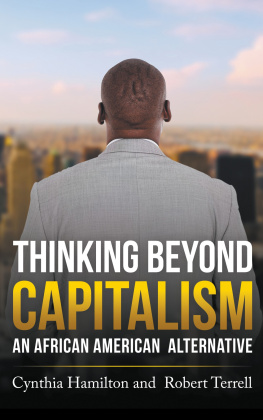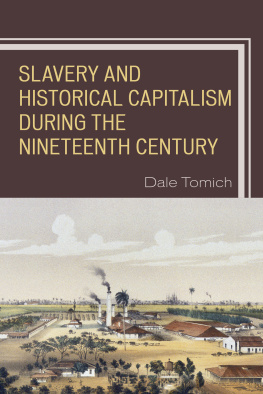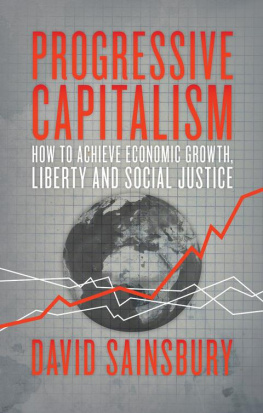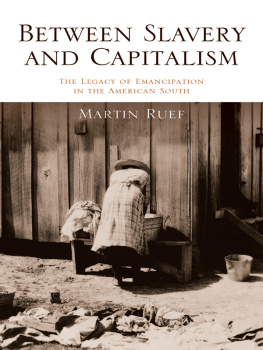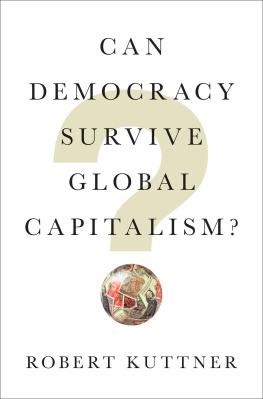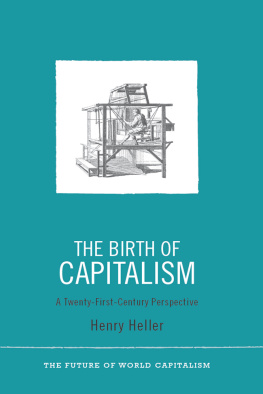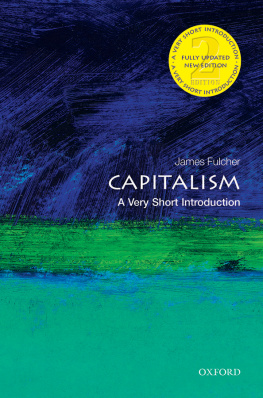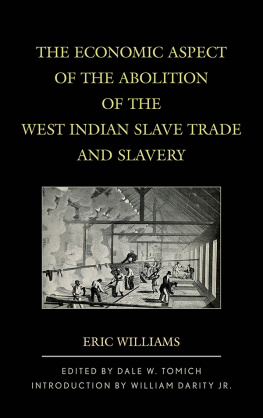Thinking Beyond Capitalism
An African American Alternative
Copyright 2018 by Cynthia Hamilton and Robert Terrell
ISBN: 978-1-63524-573-8
All rights reserved. No part of this publication may be reproduced, distributed, or transmitted in any form or by any means, including photocopying, recording, or other electronic or mechanical methods, without the prior written permission of the publisher or author, except in the case of brief quotations embodied in critical reviews and certain other noncommercial uses permitted by copyright law.
Although every precaution has been taken to verify the accuracy of the information contained herein, the author and publisher assume no responsibility for any errors or omissions. No liability is assumed for damages that may result from the use of information contained within.
Printed in the United States of America
LitFire LLC
1-800-511-9787
www.litfirepublishing.com
order@litfirepublishing.com
Chapter 1
Thinking Beyond Capitalism
Introduction
W hat we intend with this book is to encourage thinking about alternatives in the way we live our livesevery aspect, personal and economic. In many areas its a matter of starting over because some of the mistakes weve made, in our more is better philosophy of growth, cant be fixed (for example, environmental problems caused by decisions weve made about farming or weapons production).
While we dont presume to answer the big questions we think we can ask them. For example thirty years ago Schumacher declared small is beautiful. I dont think theres any doubt that it is but we are afraid to say so if it means we have to choose between big and small. In the U.S. the modern era promised more and better but it hasnt produced that for everyone.
We can look back to antiquity and compare Greece and Rome, clearly problems increased with size but there wasnt complete equality in Greece. We are not attempting to produce a grand new economic theory but the criticisms of capitalism should give us clues about what works and what doesnt even when our intentions are good.
Maybe our discussion will point to goods, the possibility of working with multiple theories/economic systems as long as there is an agreement between countries that colonialism, imperialism, any form of economic or military domination is rejected. Unfortunately, domination is/was an integral part of capitalism as we know it. Capitalism exists because domination was so complete. It was a different form of dominationcolonialismwhich acknowledged the dominate partner but also recognized the subservient nation as just that. First, as the supplier of workers, second as the supplier of raw materials, third as the consumer of first world produced goods. We can surely see the dependence of the industrial revolution on these relations.
But before we began to consider alternatives (because we must) we have to remember that how we think matters. Capitalism began as a very progressive alternative in the seventeenth century. Feudalism ruled the day, a system which locked you into the condition you were born into. You were either born to survive or not. Economically, you were born into land or not. Money had no meaning. Capitalism developed with slavery, shippers/merchants felt that those who took the risk should be the ones who benefited, not the monarchs. Initially, explorers sailed in the name of the king because he supplied the boats and supplies, the sailors supplied the risk. But when that was not the case the risk-takers wanted all the profits as well.
Initially, what made capitalism so attractive was its democratic side, if you did the work you would be compensated, regardless of family, name, or location. Those who took the risk of exploring a new world could/would be the new owners of land, the new decision makers. Those who took the risk, who worked hard would be the primary actors and beneficiaries. This is what made capitalism seem fair and just (even though there was no regard for indigenous people).
The irony of course is that this is the very component of the system which is absent today.
Capitalism And Slavery: The Contradictions Are Born
Part of our intention is to explore history to see how capitalism came to be the favored economic system, even though it cannot be separated from domination and oppression.
1492 was the beginning of competition between European countries as we know them, first, for land second for markets. The Pope divided new territories between Spain and Portugal. But, as we know there were many more countries exploring, looking for land and gold. Initially it was the lure of gold but as the Portuguese learned not all land had gold to be mined but that didnt mean there werent other ways of getting gold from the land. It started with the effort to sell the products of the New World in Europe. But then the issue got more complexsomeone had to mine the gold or/and work the land (for the coffee and sugar). There were limits on the number of workers that could be sent from Europe (after all someone had to do the work at home), the native population refused to work. Theyd have to bring in workers and then figure out how to get their money back.
When the British moved into Africa it was to follow the trail of gold in the north which the Ghanaians left as they moved east to Egypt in their quest for salt. The gold they found came first from selling products made in Europe. The industrial revolution, slavery, capitalism and the end of feudalism are coterminous. But it is useful to talk about their relationship. Only a few have dared to do this. Eric Williams did in 1944 when he wrote Capitalism and Slavery . The book fluctuates in its availability. While there are no absolute reasons why, I can speculate that the major reason is because he documents the necessary relation between the industrial revolution and slavery; slavery provided the financial backing for the industrial revolution. Even banking and insurance originate with the profits from the slave trade. Some of the major industries have their origin with slavery, ship building and weapons production in particular, along with the production of items of trade.
While it is common for people to associate slavery with race and to evaluate it morally/ethically Williams emphasizes that the reasons for slavery are not moral but economic, they relate not to vice and virtue, but to production.
Slavery was not born of racism: rather, racism was the consequence of slavery. Unfree labor in the New World was brown, white, black, and yellow.
The end of feudalism results almost directly from mercantilism which was built on the slave trade. The bourgeois revolutions, the English (1644), the American (1776), and the French (1789) are a result of this period giving more power to the economic actors at the heart of slavery and the industrial revolution. And finally industrial capitalism destroys slavery. Will it also destroy itself? Slavery and industrial capitalism could not live comfortably together -one side paying workers (though poorly) and the other side owning them. So, finally industrial capitalism destroys slavery but maintains racial hierarchy.
Age Of Enlightenment:
The Contradictions Take Shape
Individuals and Individualism
Most of the ideas which shape the way we think come from the period covering the 17 th and 18 th centuries when the emphasis was on individualism and reason rather than tradition and custom. The irony of the age of Enlightenment is that it is also the age of slavery, the age of contradictionliberty, equality, and slavery. What allowed Europeans to tolerate this irony is racism.

